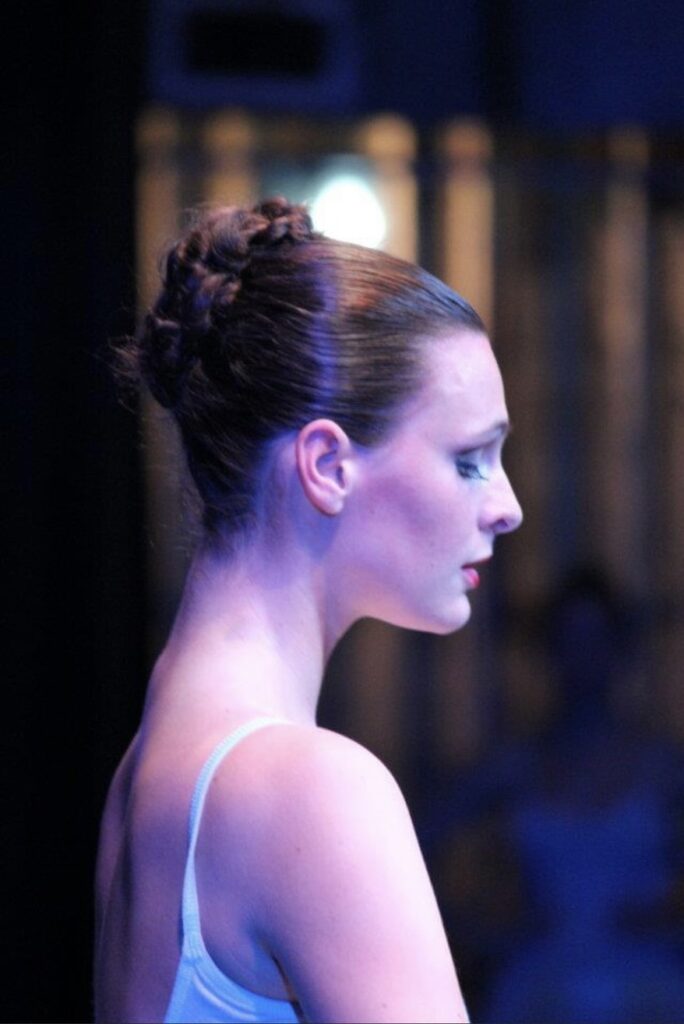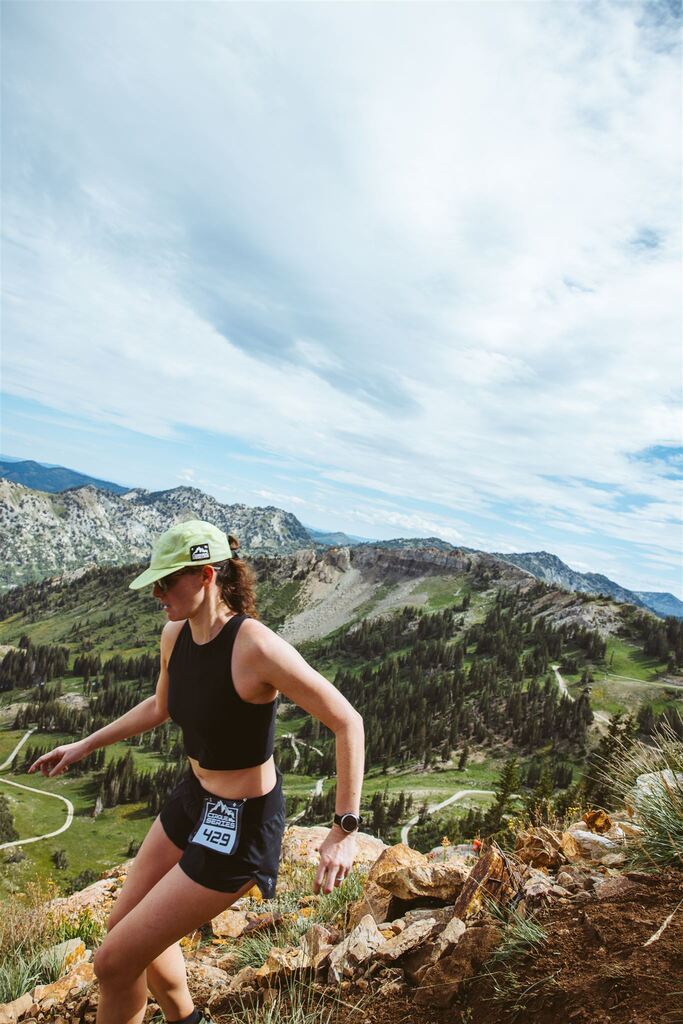Of course trail running is fun, but does it always have to be just for fun?
As a young ballet student, I watched my rehearsal director wheel a small television into the lobby of my dance studio on a Saturday morning. I huddled alongside my classmates as he popped in a VHS of Romeo and Juliet performed by American Ballet Theater. We were transfixed. Our director stood behind us providing the names of the various principal dancers, encouraging us to absorb as much as we could about their technique and artistry.
“If you want to be a great dancer, you have to be obsessed with it,” he said.
Reflecting on that moment, I now understand that obsession does not equal greatness (in anything, but especially ballet). However, in that moment I believed my director’s words and begged my mom to purchase as many ballet DVDs as we could find. Full length ballets, contemporary work, documentaries – anything remotely related to dance. Once Youtube became more mainstream, my knowledge expanded tenfold. Suddenly I had access to an infinite amount of content, feeding my desire to become a great ballerina.
Despite nearly two decades of hard work and obsession, I did not become a professional dancer. Instead I became a physical therapist, then a corporate customer success manager with a trail running habit. Surprisingly, my free time is not dissimilar to how I spent many hours when I was a ballet dancer. When I’m not trail running or working, I’m scouring Youtube for new trail running videos. I’m talking to my friends about trail running. I’m listening to podcasts about trail running. I’m reading and writing about trail running. But is this obsession?

It’s Okay To Be Competitive as an Amateur Runner
Most people would assume based on my running resume that I “run for fun”. I am not a professional trail runner; my livelihood does not depend on this sport; no one cares if I finish 30th versus 300th place. However, these facts don’t stop me from getting pissed off when someone passes me in the last mile of a race, or disappointed when I don’t PR on my local hill. I’ve become increasingly perplexed when hearing others tell me: It’s okay. It’s just for fun. While I understand the implication: Hannah, don’t worry. This is just your hobby. It’s not important enough to lose sleep over, I can’t help but feel like this type of comment devalues the time and effort that amateur runners, like me, put into their training. Yes, I do “run for fun,” but much of that fun happens when I’m being competitive (even if it’s just competitive with my fellow mid-packers).
Objectively, I was a talented dancer, and had a high likelihood of becoming a professional. Whenever I was disappointed after a performance or audition, my parents and friends never consoled me with: Don’t worry. It’s just for fun. Rather, they lovingly encouraged me to analyze what I could do to improve for next time. Through this encouragement, I felt validated and more motivated to strive toward bigger goals. Outside of a paid coach-athlete relationship, I have not witnessed this type of encouragement often amongst amateur runners. Perhaps in validation of their athlete’s goals is where a large portion of a coach’s value lies.
I recently spoke with a fellow Salt Lake City runner, Bonnie Kaminsky, who told me she has experienced similar it’s just for fun comments based on her level of perceived competitiveness:
“When I was in better health and training for Boston, I was fast enough to do well in smaller settings and got a lot less of that type of phrasing aimed at me than during times I’ve been more entry level or recovering from injury.”
I don’t think I’m wrong to assume that professional runners don’t also have fun when participating in this sport, but we typically accept that professionals devote a level of seriousness to their discipline. Can amateur runners give themselves permission to do the same?
It’s Okay To Be an Aggressive Woman
This past May, I toed the line at the women’s only Thelma and Louise Half Marathon. Despite the event offering a 50k and full marathon, the half and 15k distances were by far the most popular, boasting 273 runners compared to the 27 and 40 registrants in the other races, respectively. One minute before the gun went off, I was shocked by what I saw. There was at least a 10 foot space between the startline and where the pack of women runners stood waiting. I had looked at the signup list previously and knew there were several speedy women racing. Why wasn’t anyone standing up front? Why did it seem like everyone was programmed to try not take up space?
As a woman and feminist, I try my best to uplift other women and women-identifying individuals with my words and actions. I, too, dream of a Barbie Land reality where women make up the entirety of the Supreme Court. However, sport highlights some interesting paradoxes. For example, can I still be uplifting other women when I metaphorically want to–in the words of trail running coaches, David and Megan Roche–“crush b*%ches” during a race?
My husband and his group of male friends frequently discuss their various rivalries with each other. Out on a race course, they do not hide their feelings. Despite blatantly acknowledging their desire to beat one another, they somehow still manage to grab a beer and enjoy each other’s company afterward. However, with women – especially amateur women, I don’t see that same unabashed competitiveness as often. When competitiveness is displayed, it’s usually accompanied with backlash. The most recent example that comes to mind is the criticism Louisiana State University’s basketball star, Angel Reese, received for “unsportsmanlike behavior” during the NCAA women’s basketball championship this past spring. This incident felt a lot like sexism (and racism) masked as a constructive criticism of character.
For an example closer to home, I recently reviewed the reactionary comments to iRunFar’s interview with Sabrina Stanley following her 2nd successful FKT attempt on Nolan’s 14 in 2020. Both men and women criticized Stanely’s word choice during the interview, describing Meghan Hick’s quick success at securing the FKT only a month after Stanley as “a slap in the face”. A word frequently brought up within the discussion was humility or Stanely’s lack thereof.
In both the case of Angel Reese and Sabrina Stanley these moments wouldn’t have been noteworthy coming from a male competitor.
Humility, grace, composure, poise are words that have deeply seeped into my psyche since I was a small girl, and continued to form the foundation of how I assumed all of my social interactions needed to be perceived. Control your emotions. This subliminal message keeps women from verbalizing our true goals, which, if we’re being honest, might be to beat your best friend’s time or leave that other girl in your dust when you pass her (i.e. crush b*%ches).

It’s Okay To Care an Embarrassing Amount
Conversely, I recognize that many individuals do want to run “just for fun.” Regardless of their pace or gender, they just want to be outside, do something good for their bodies, and enjoy the experience. I uplift this, yet I also feel pressure to strive toward this same mentality. I remind myself that it’s okay to care about something more than others.
For anyone who’s experienced unrequited love, you may remember that caring for someone puts you at risk for deep pain. For others in long-term relationships, you might understand that caring for your partner involves unpleasant emotions, fatigue, and grind just as much as happiness. We don’t love just for fun, despite the many enjoyable moments we experience as a result. We love because we’ve decided that someone or something matters. Such a thing becomes worth the time and effort.
I am currently in a long-term relationship with trail running. (It honestly might be unrequited love depending on how you want to look at it.) This relationship is at times uncomfortable, unnerving, and difficult, but it has also brought me immense happiness and satisfaction. Like any relationship, I’m learning that it’s okay to care about it. It’s okay to want to run well and move up a place or two among the mid-pack. It’s okay to be upset when I have a bad run. It’s okay for me to watch hours of trail running videos on Youtube. It’s okay to be aggressive and powerful during a close race.
Cassandra Trenary, principal dancer with the American Ballet Theater, recently gave an interview with the New York Times discussing her preparation for an upcoming performance of Romeo and Juliet. In it, she spoke of her time rehearsing with her late mentor, Lynn Seymour. Trenary stated, “…she [Seymour] let me know that it was OK to care an embarrassing amount. Because I do.”
Hopefully, we all have something with which we care an embarrassing amount. Right now, mine is trail running.
